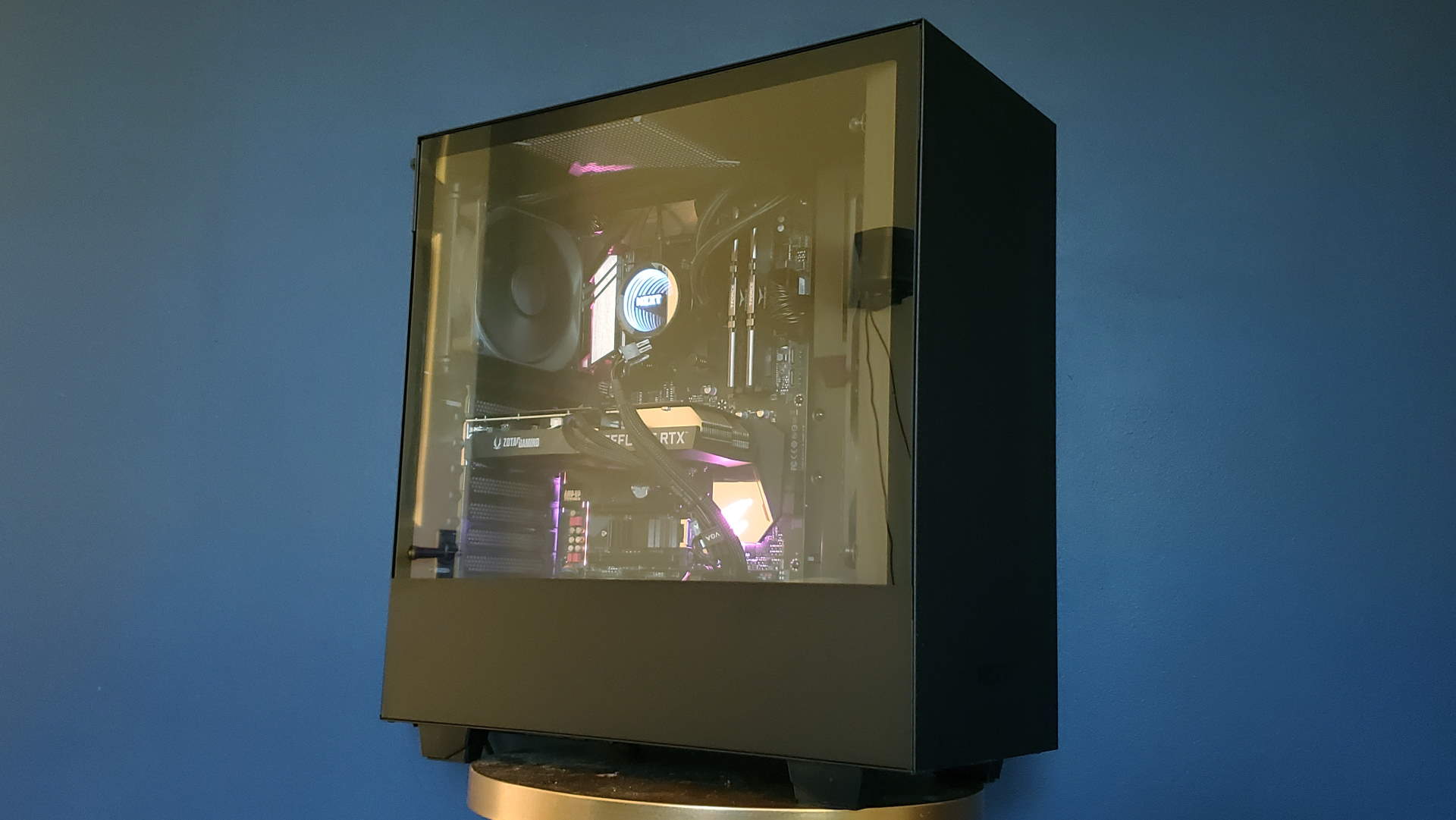Our Verdict
As a mid-range streaming PC, NZXT's system ticks all the necessary boxes, and its N7 B550 upgrade ensures you get all the connectivity and sockets you need for all those peripherals. You are paying a premium, however, so if you're just looking for a pure gaming machine those extras might seem an unnecessary luxury.
For
- Good-looking
- Solid spec
- Lots of USB and Wi-Fi
Against
- 'Streaming' angle comes with a premium
- More basic RTX 3060 Ti rigs are cheaper
PC Gamer's got your back
The NZXT Streaming PC series is designed to capture the appetite for game streaming and offer people a simple pre-built system to make all their Twitch celebrity dreams come true. Okay, that's maybe promising too much on NZXT's behalf there, but the basic idea is to create a range of PCs that will game comfortably while still being able to host a smooth stream.
But they also come at a range of different prices, and the most affordable of the lot, the base NZXT Streaming PC, is actually just a good mainstream gaming rig with a lot of extra quality of life features. There's a quality, multi-core CPU at its heart, a speedy SSD, and a good chunk of relatively quick system memory. That's what will have your stream running smoothly, but the 12GB RTX 3060 will have your 1080p gaming running just as silkily. Then there's a bunch of USB ports, Wi-Fi 6E, and a solid VRM to balance it all out.
And it's a good-looking rig, especially as they're now shipping with NZXT's own ASRock-built N7 motherboards. And I thought they looked good with the original Gigabyte Aorus Pro motherboards they shipped with. The updated B550 boards now match the restrained style of the classic H510 chassis with the covered aesthetic of the NZXT mobos, and offer a better feature set, too. Now, we've had issues with the first NZXT boards in the past—and our Jacob just won't let that go—but now they're coming from ASRock they actually have decent BIOSes in them.
As streaming-focused machines, NZXT is pointing the range at the AMD Ryzen 5000-series of processors, and this Streaming PC and the higher spec Streaming Plus PC both use the mighty Ryzen 5 5600X. That's a fantastic six-core, 12-thread CPU, that has the gaming chops to back up its streaming skills. NZXT has also strapped its own Kraken 120 AIO cooler to it, in order to keep it cool and quiet.
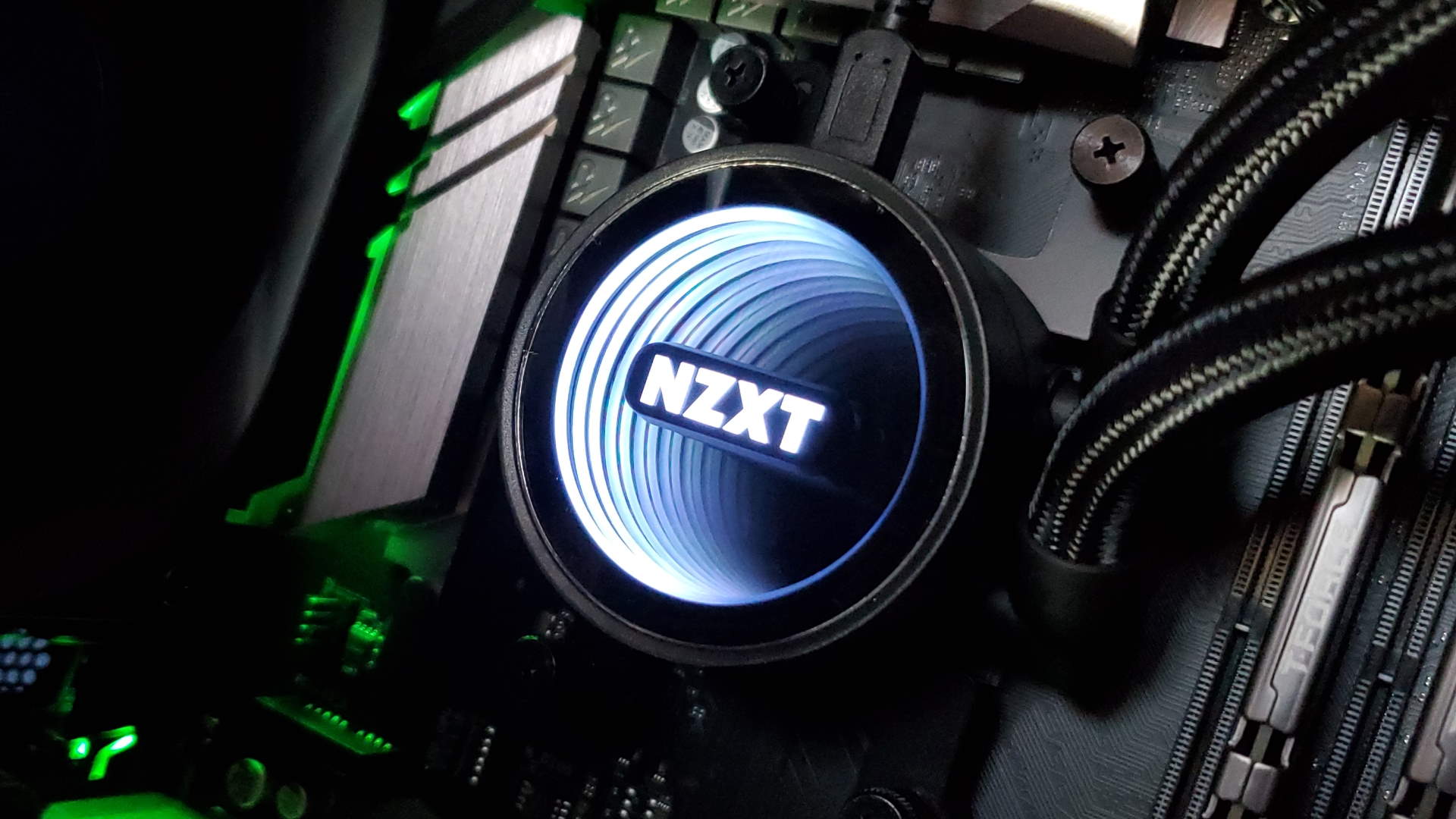
CPU: AMD Ryzen 5 5600X
Motherboard: NZXT N7 B550
Cooler: NZXT Kraken 120
RAM: 16GB (2x8GB) TeamGroup DDR4-3200
GPU: Nvidia RTX 3060 12GB
Storage: 1TB NVMe SSD
Warranty: 2 years parts and labor
Price: $1,399
In the $1,399 Streaming PC that's all backed up by 16GB DDR4-3200, in dual-channel configuration to maximise memory bandwidth, and a 1TB NVMe SSD. The gaming grunt is then shouldered by the RTX 3060.
Basically, this is the sort of gaming PC spec you'd expect from a $1,400 gaming PC in 2022. Personally, I'd love to have an RTX 3060 Ti at this price, but you can see from the Redux Good Tier machine that this is where we're at right now. Slowly, that is changing, however, and you will start to find more discounted higher spec systems from other builders appearing at this same price point as we get closer to the launch of the next generation at the end of the year.
In fact, NZXT does have its own Starter Pro PC which comes with a weaker 10th Gen CPU and the RTX 3060 Ti, but is $100 cheaper. Wouldn't be as much cop as a streaming rig—with the Core i5 10400F and basic Asus B560-Plus motherboard—but it would deliver higher frame rates across the board.
This Streaming PC system is more balanced, but a build laser-focused on gaming can shave some costs when it comes to the more basic components.
That's still going to make it harder and harder to recommend full-price rigs angled towards a more niche focus, such as the NZXT Streaming PC, especially just from a pure cost point of view. The RTX 3060 Ti is a measurably better graphics card for every PC gamer and if that's 100% your focus, that's probably the sort of machine you ought to be looking for.
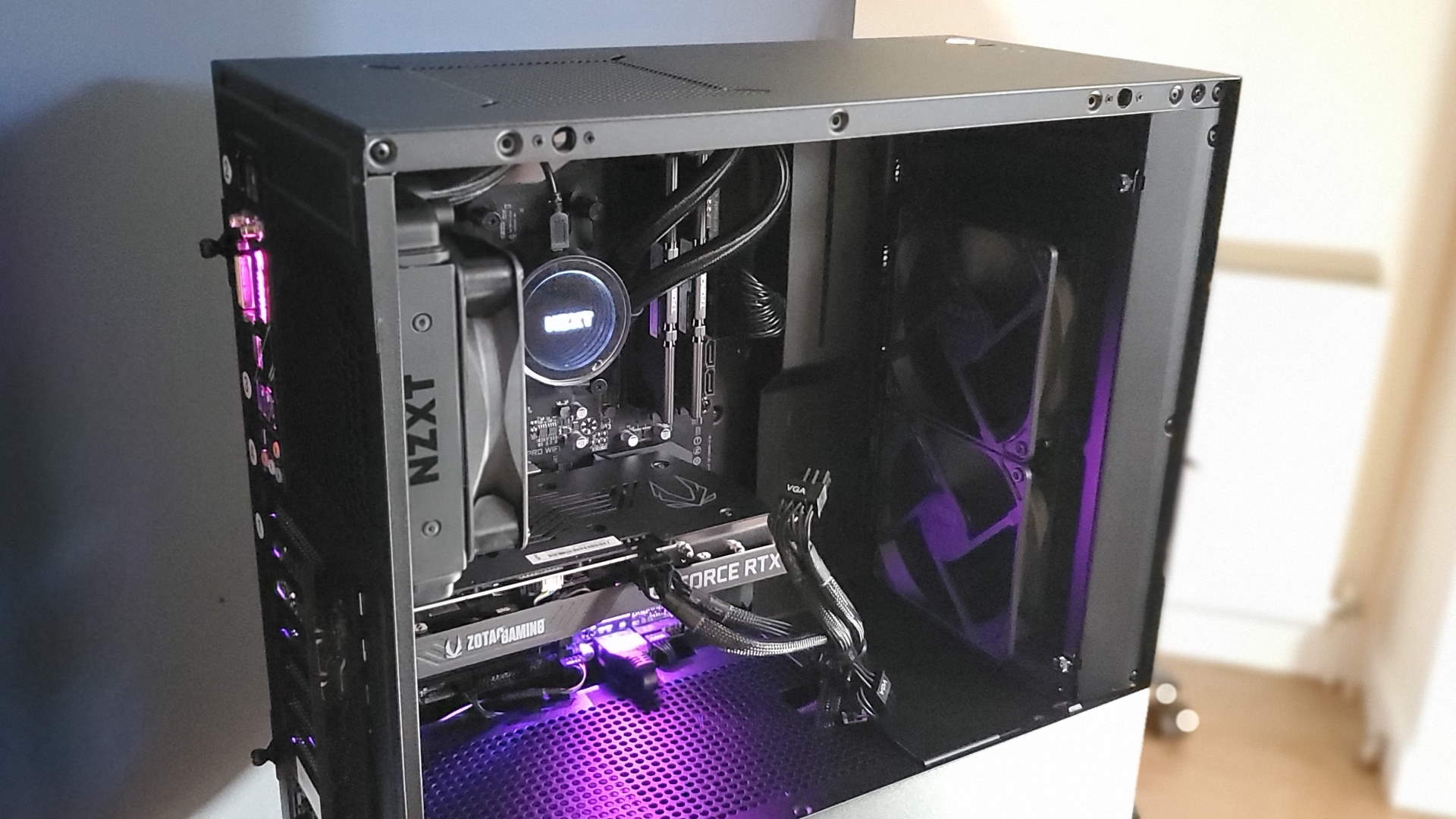
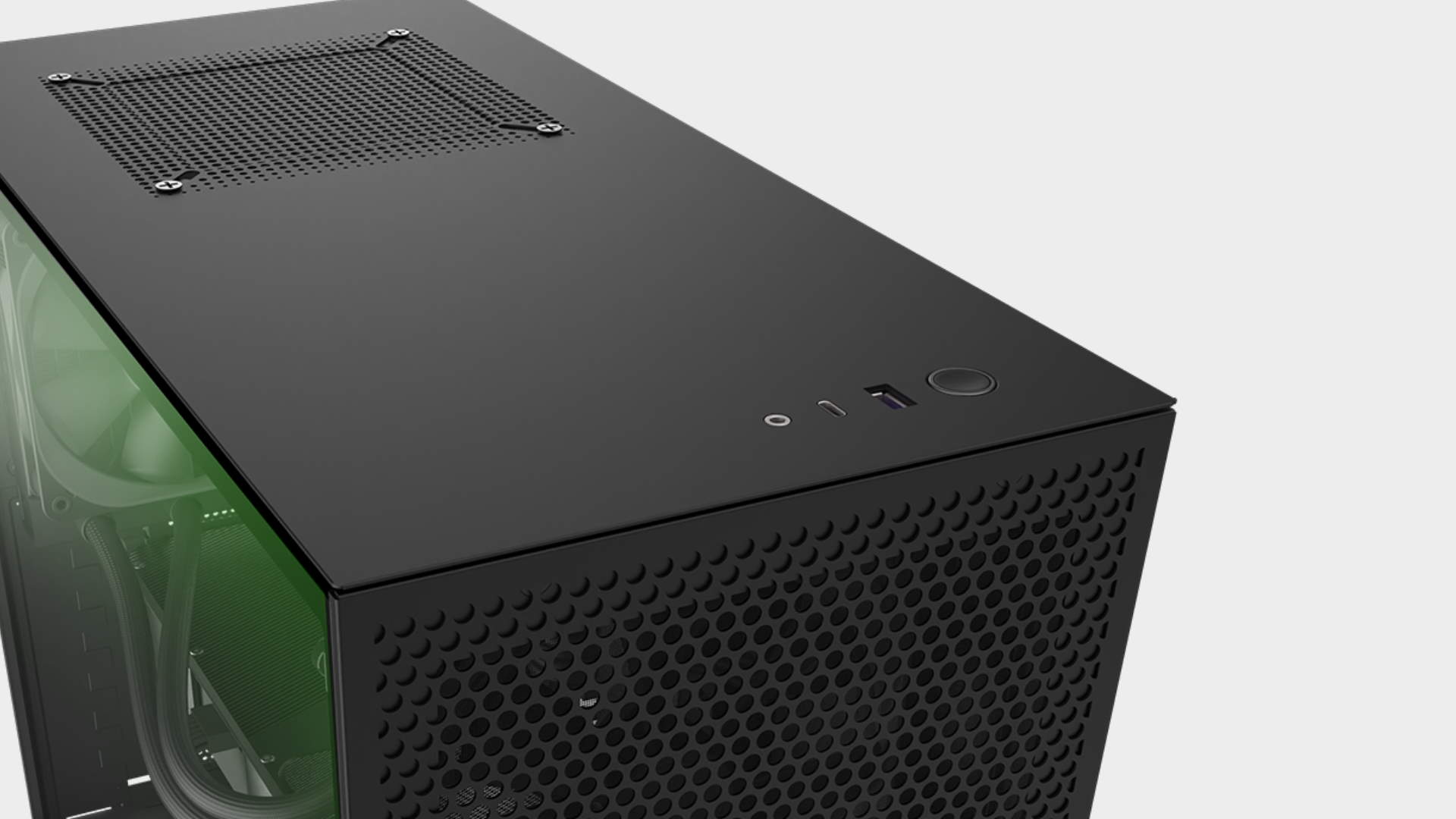
You'll hope it never becomes a factor, but a full two-year parts and labor warranty on a prebuilt machine does give you real peace of mind
But if you need them USB ports for more productivity focused stuff, you'll be grateful NZXT dropped in a more feature-rich mobo, rather than a bargain basement one that only has enough ports for your mouse and keyboard.
What NZXT also has on its side, compared to some other system builders, is its two-year warranty. I mean, you'll hope it never becomes a factor, but having a full two-year parts and labor warranty on a prebuilt machine does give you real peace of mind. Especially if your burgeoning streaming career starts taking off, eh?
In terms of performance it's all rather straightforward, with the Streaming PC delivering almost identical 1080p gaming performance compared with the Redux machine we recently reviewed. It is slightly slower, but only by a negligible number of frames per second. And if it wasn't consistently just behind the competition we'd just put such a delta down to variance in testing. But here it highlights the difference in AMD and Intel CPUs between the two rigs.
Gaming performance
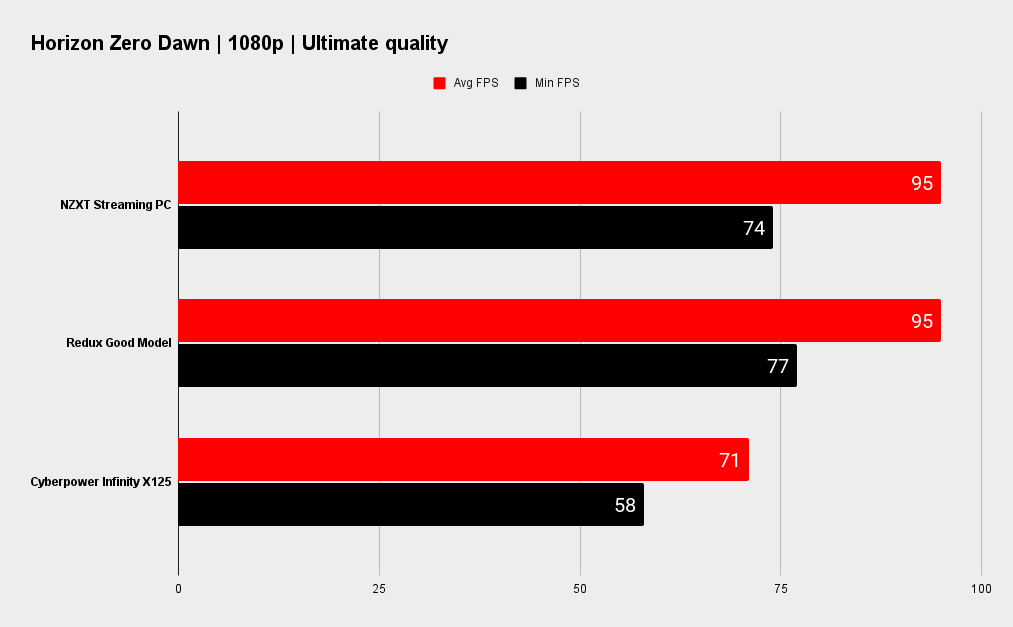
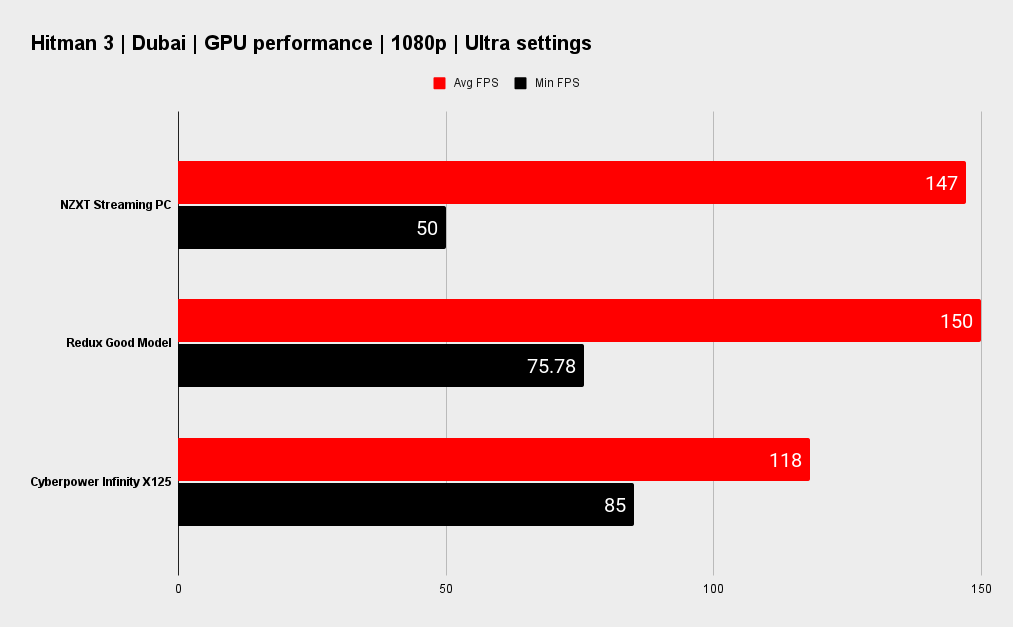
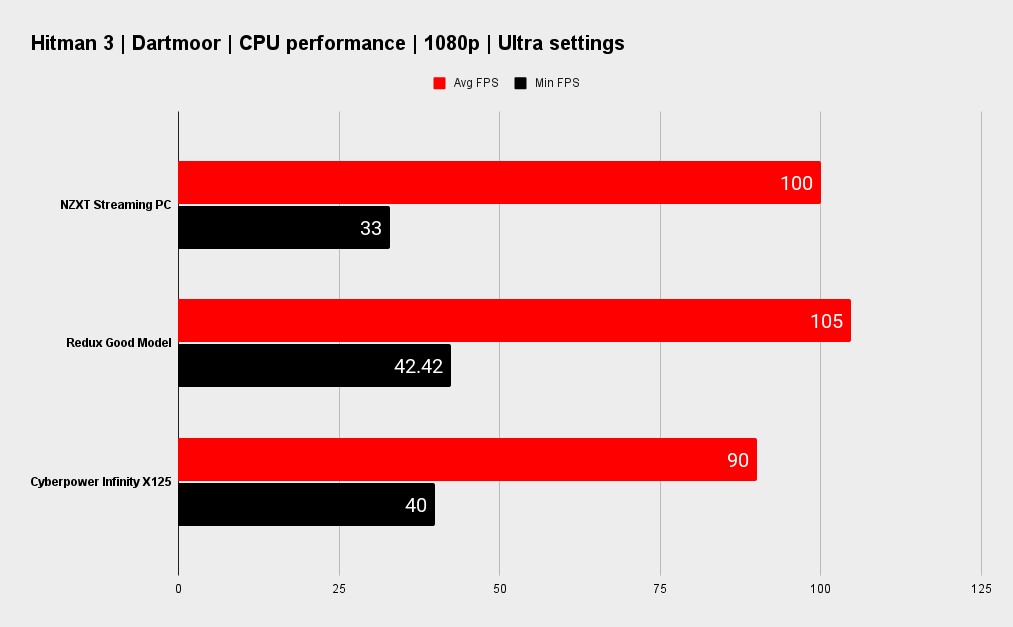
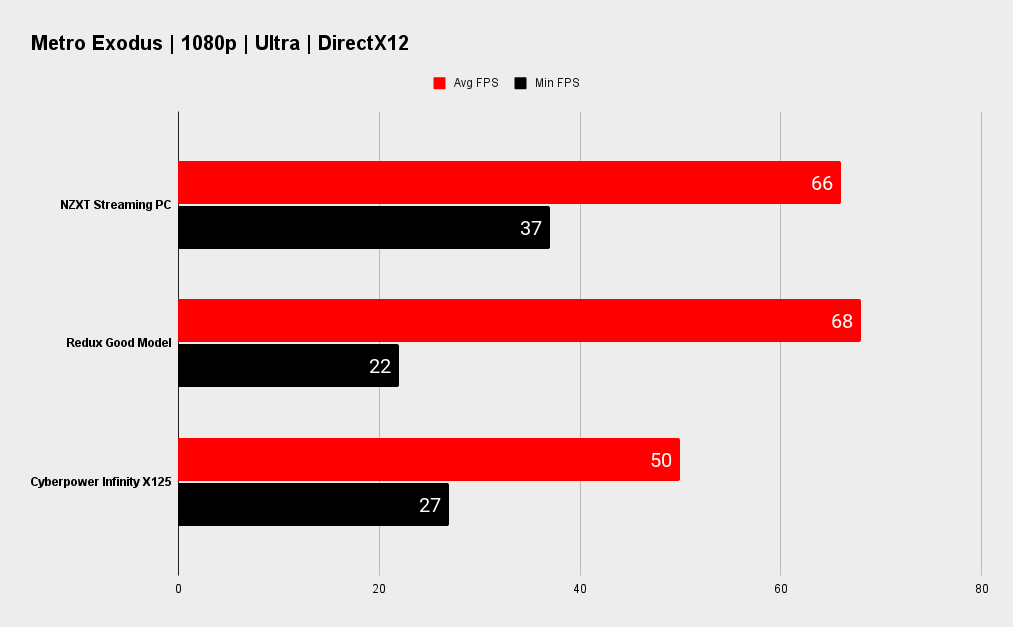
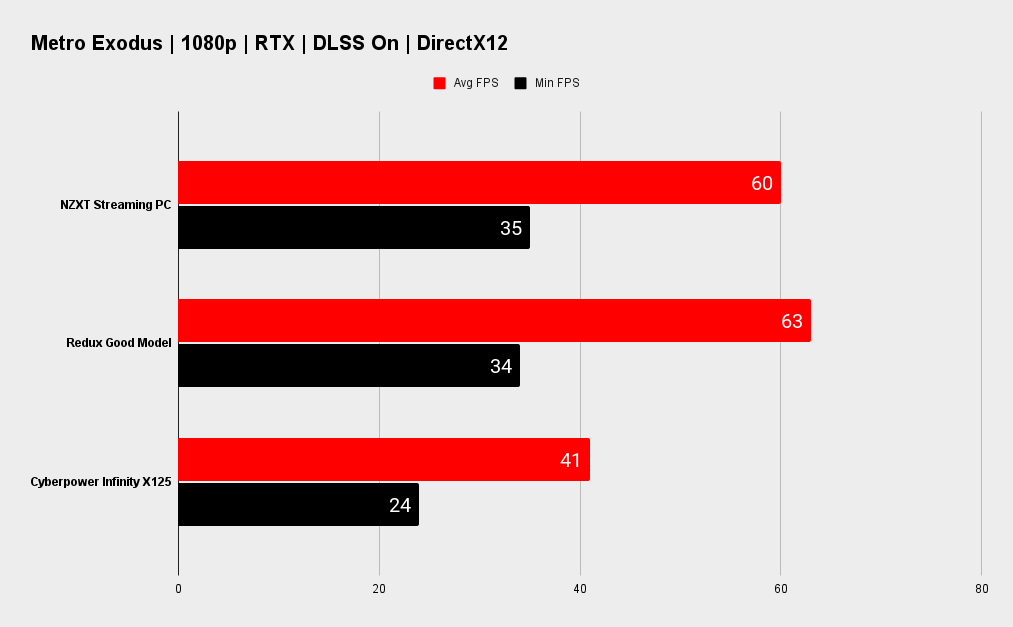
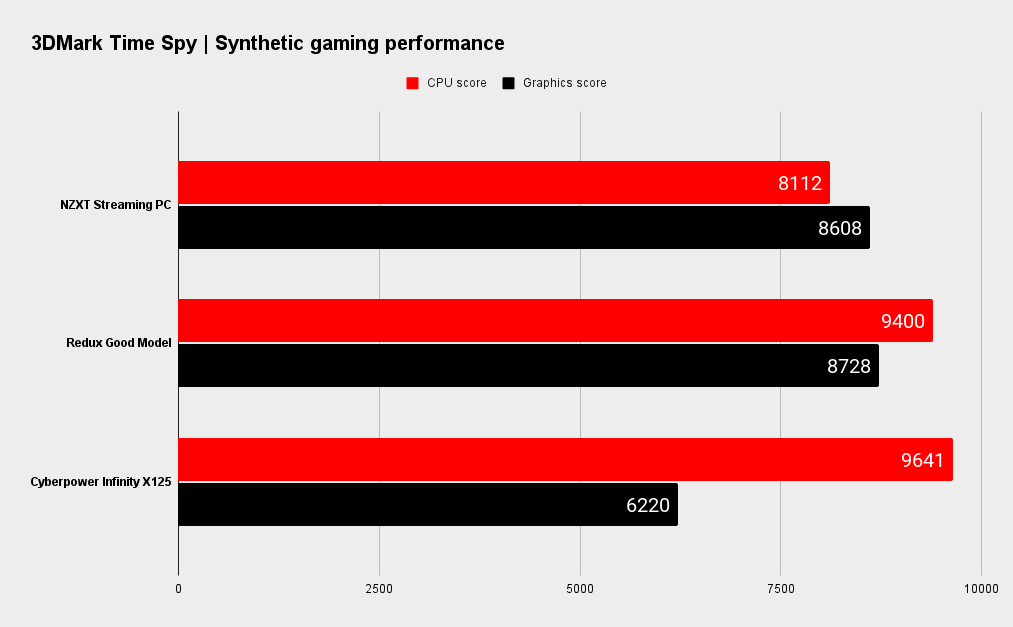
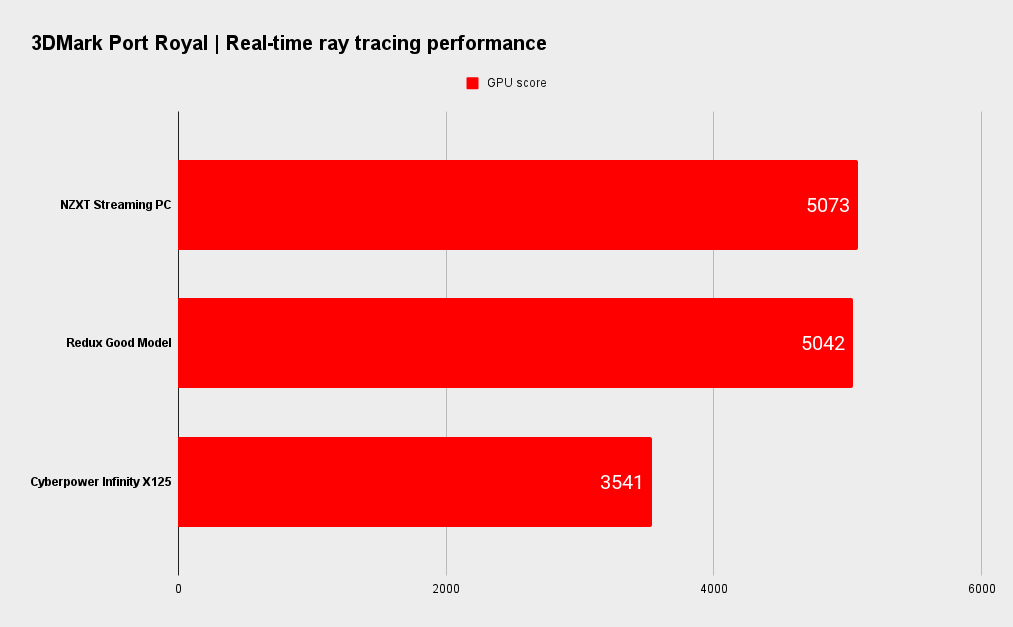
System performance
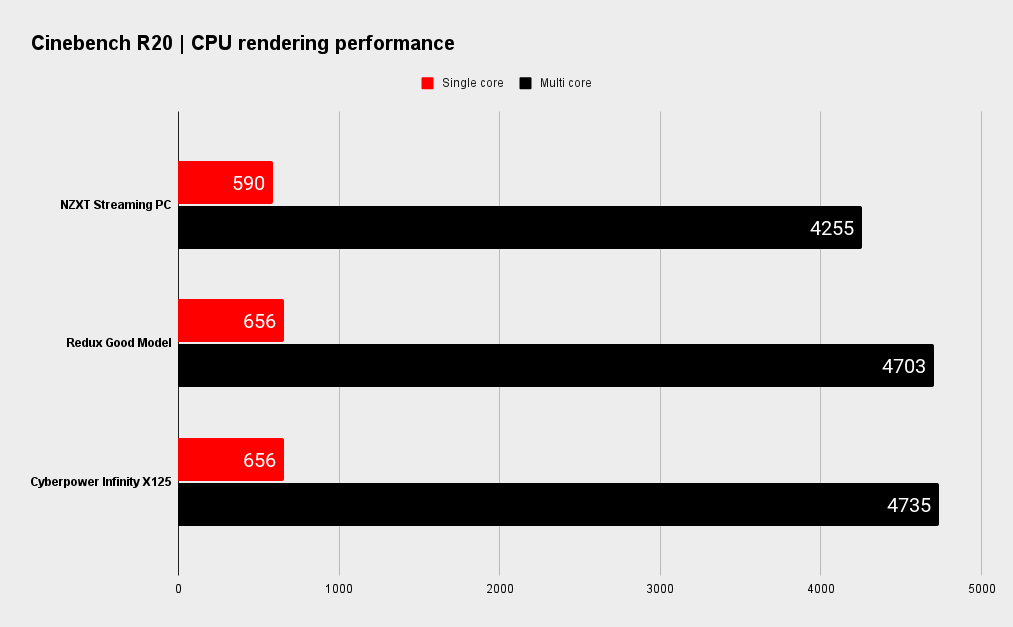
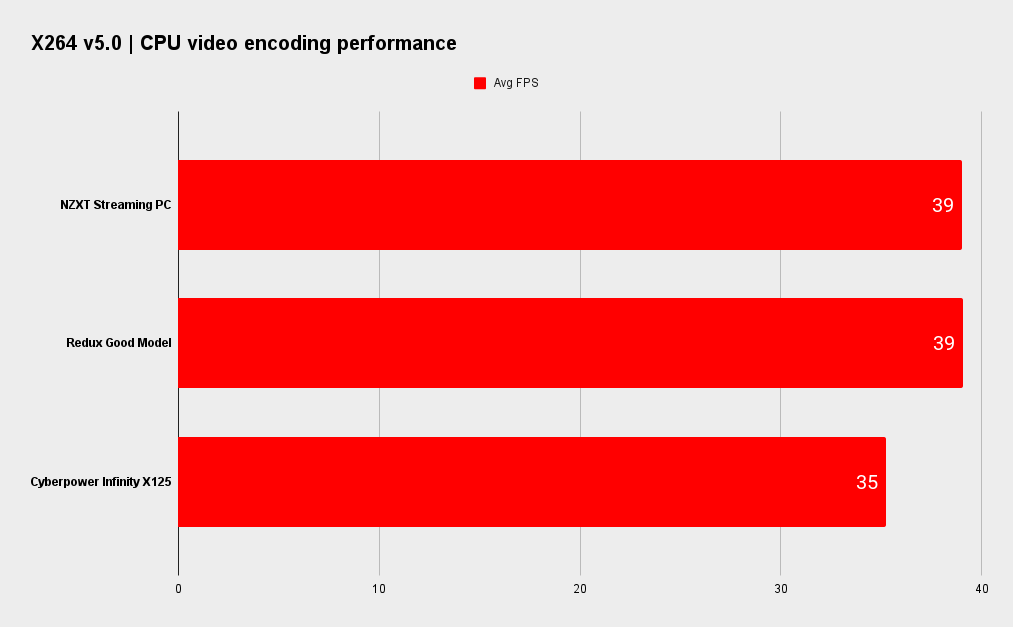
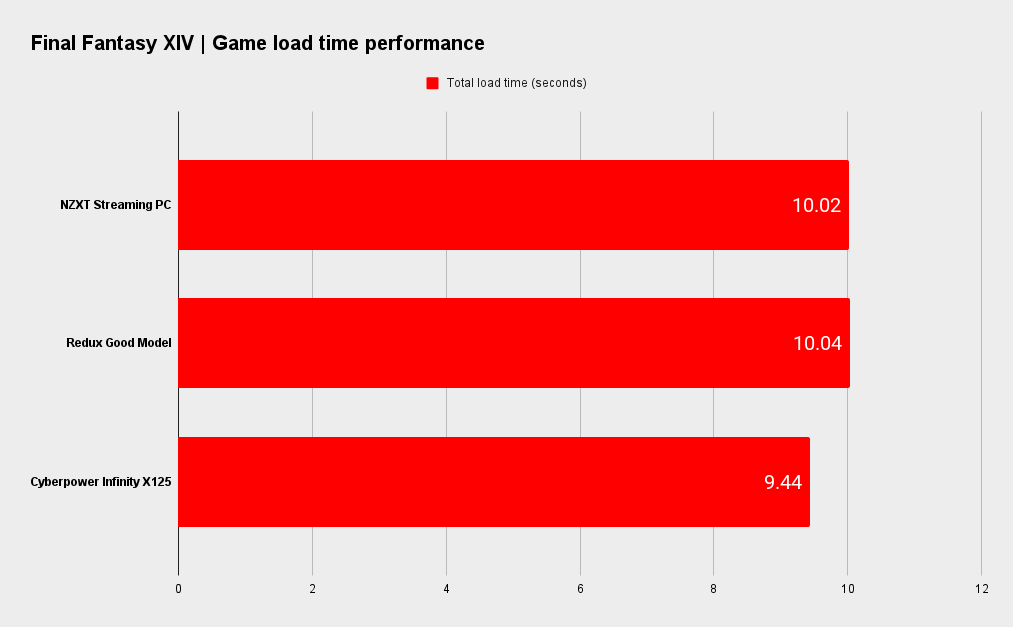
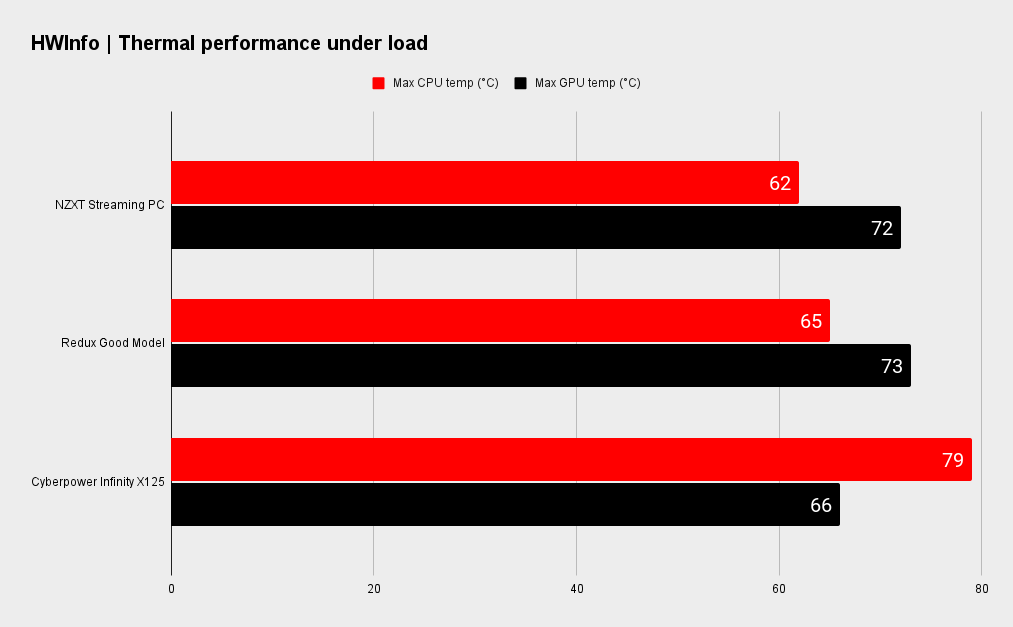
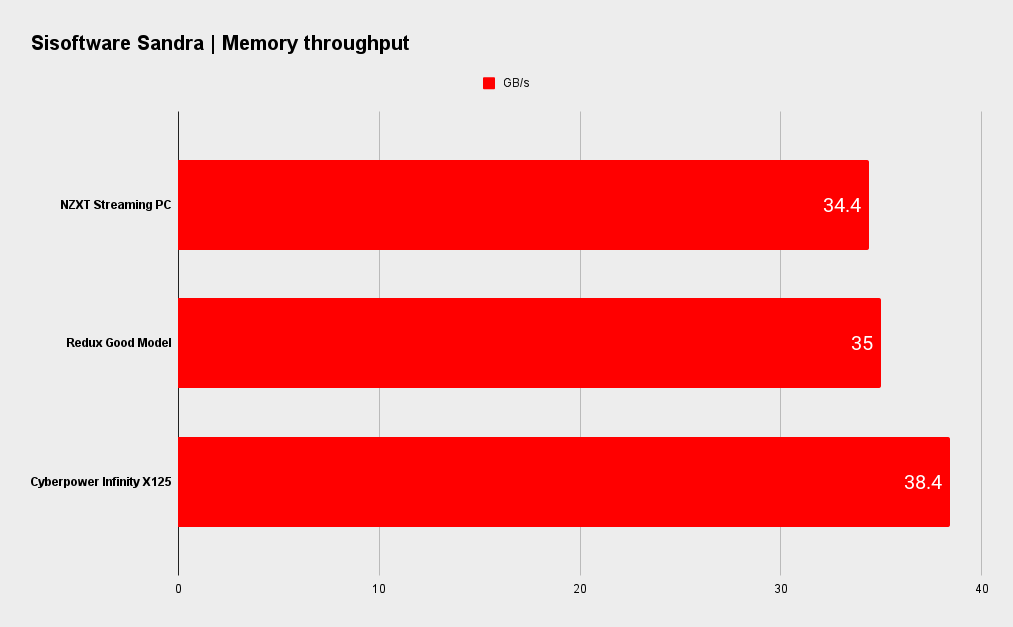
AMD has been rightly lauded for its excellent Ryzen 5000-series processors, but Intel really nailed its 12th Gen chips, and most especially at the lower end of the market. The Core i5 12400F is another six-core, 12-thread CPU, but just has the edge over the 5600X in both gaming and general productivity chops.
I don't disagree with NZXT picking Ryzen for its Streaming PC range, but an Intel build certainly isn't missing the mark either these days.
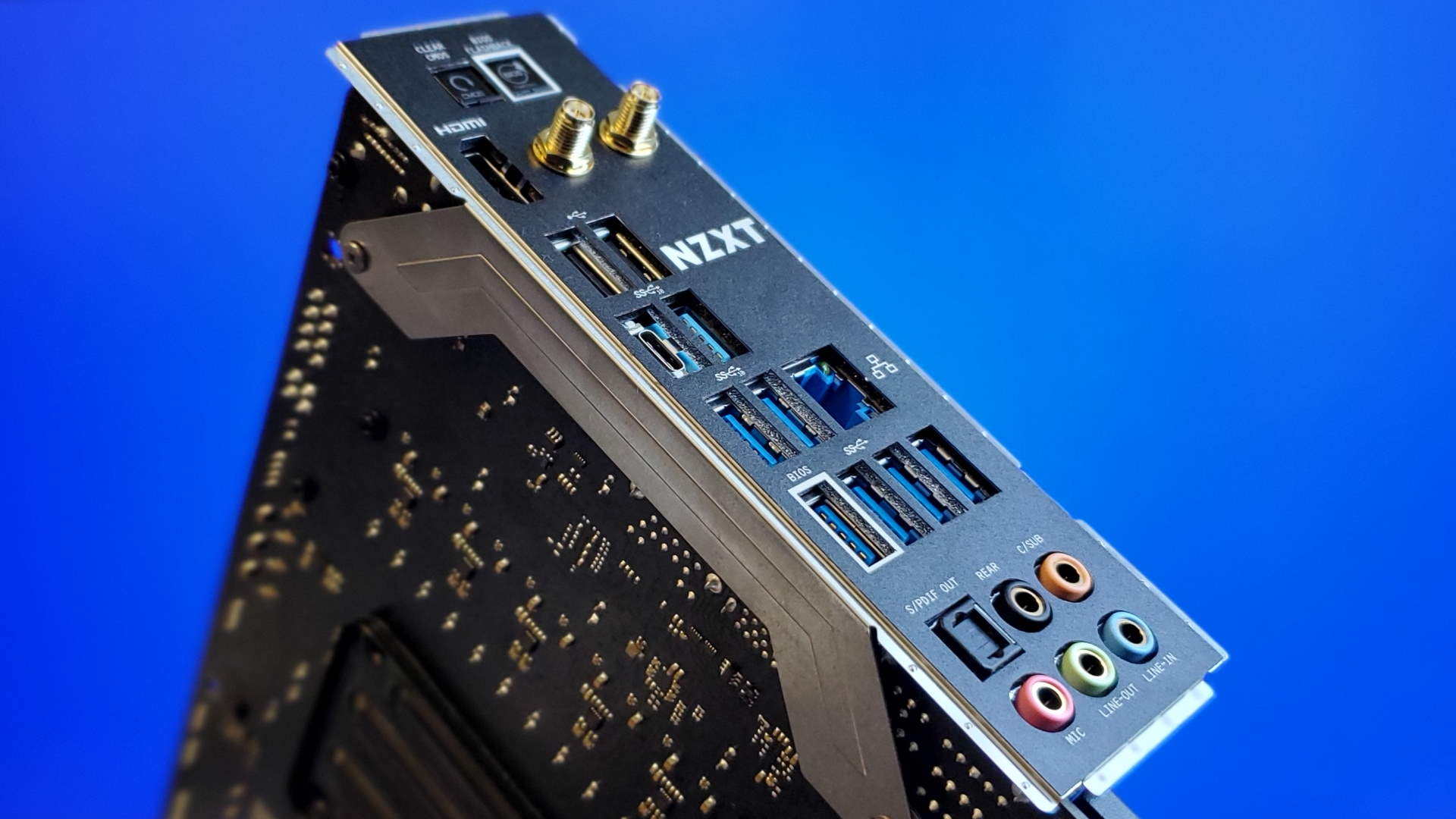
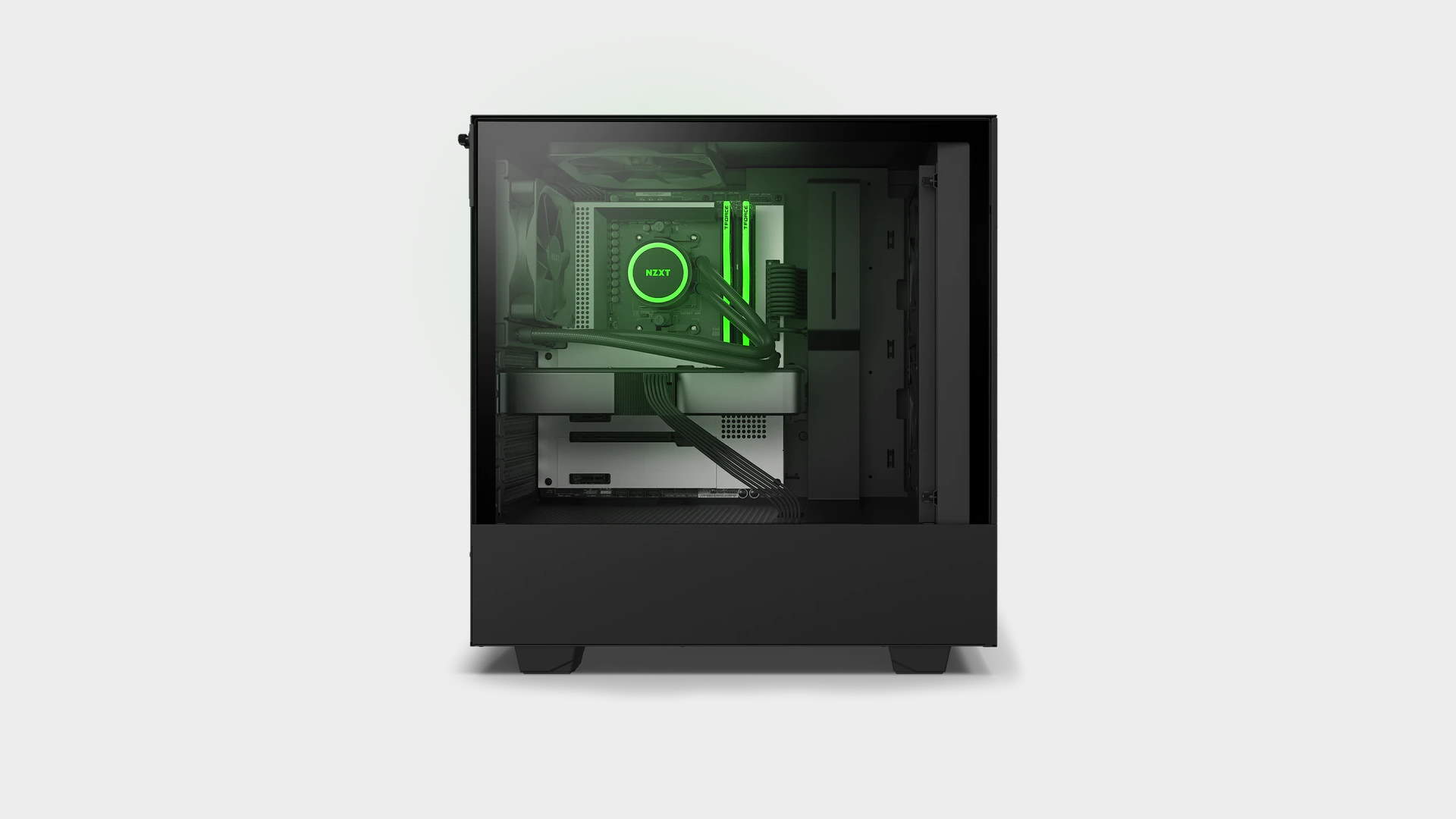
Where this system has the edge over the Redux and many other mainstream rigs—1TB SSD and warranty aside—is that NZXT B550 is a feature-packed mobo, with Wi-Fi 6E support, twin M.2 slots, and a whole load of USB ports. The back panel is filled, something you rarely see these days, and there's USB Type-C, too. That was a big miss from the basic Redux machine.
There's also an internal Type-C header, connecting up the socket on the top of the stylish H510 chassis.
If you're really looking to get into streaming, having your webcam, microphone, Loupedeck/Stream Deck, and assorted other peripherals all plumbed into your rig means you're going to need a host of accessible USB ports. And the Streaming PC certainly delivers on that front.
As a slick package, the NZXT Streaming PC is a quality game streaming machine. If you were looking for a straightforward, feature-packed PC to kickstart your budding streaming career you could do a lot worse than this system. If all you're after is a pure gaming machine, however, then a rig with such a clear focus isn't necessary and you will find faster systems, without the balanced feature set, for less.
As a mid-range streaming PC, NZXT's system ticks all the necessary boxes, and its N7 B550 upgrade ensures you get all the connectivity and sockets you need for all those peripherals. You are paying a premium, however, so if you're just looking for a pure gaming machine those extras might seem an unnecessary luxury.

Dave has been gaming since the days of Zaxxon and Lady Bug on the Colecovision, and code books for the Commodore Vic 20 (Death Race 2000!). He built his first gaming PC at the tender age of 16, and finally finished bug-fixing the Cyrix-based system around a year later. When he dropped it out of the window. He first started writing for Official PlayStation Magazine and Xbox World many decades ago, then moved onto PC Format full-time, then PC Gamer, TechRadar, and T3 among others. Now he's back, writing about the nightmarish graphics card market, CPUs with more cores than sense, gaming laptops hotter than the sun, and SSDs more capacious than a Cybertruck.
